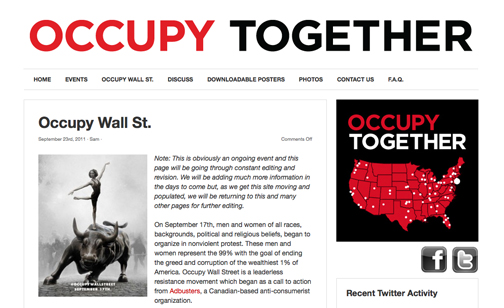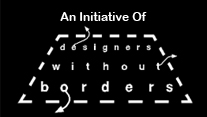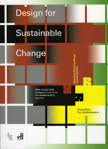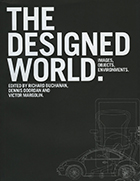Victor Margolin
Let’s be clear. The folks on Wall Street and others who work in the financial and banking industries don’t make anything. They create pieces of paper that encode the bad deals they have foisted on American consumers or they buy and sell these pieces of paper among themselves. How many letters have each of us received telling us that our mortgage or some other payments we owe are now due to someone we never contracted with? We got those letters because our original lenders sold our debts to people who thought they could profit from holding them and collecting on them. After all, there’s the interest to be gained and the possibility of a foreclosure if we don’t pay up. Many people also bought bad mortgages, geared to cause them problems through the hidden costs of variable rates. In fact, a gullible public eager to better itself with new homes was euchred by the mortgage industry into setting itself up for draconian foreclosures.

Meanwhile the Wall Street folks were running their own casinos, buying and selling toxic pieces of paper and betting on the capacity of debtors to pay their debts. If the public had not been so eager to participate in bad deals, they would have nothing to buy and sell and bet on. So in the end, the public lost its collective shirt and the Wall Street gamblers struck it rich. Now we have thousands of people across the United States and increasingly the world demonstrating against the high rollers who made off with their hard earned money and came close to bringing down the global economy. President Obama and his Congressional allies passed the Dodd-Frank Wall Street Reform and Consumer Protection Act to stop some of these shenanigans but the rich folks’ lackeys in Congress don’t want to implement it. None of them like the idea of a consumer protection agency that would help innocent people fend off the crooks who are trying to cheat them with high interest rates for credit cards and other kindly deeds that are all clearly spelled out in contracts with 2-point type and leading between the lines that’s thinner than the filaments of a spider’s web.
The Occupy Wall Street protests are a start towards turning things around. Their greatest value at the moment is to wake up the collective sleeping giant – the millions of people who have been bilked by unscrupulous lenders, greedy vendors, and other unsavory types. Many of the richest one percent of us Americans did not gain their wealth from honest labor as the great industrialists of our history did but rather by feeding off our own bad judgment as we gave them our money to play with. That includes the pension funds of municipal and state governments and the investment portfolios of universities and lots of not-for-profit organizations. Who can deny that our own desire for a handsome profit on our investments played into the hands of the snake oil salesmen who run the hedge funds where it was put into bad investments? They, of course, took their cut for making the trades so they didn’t lose out but the rest of us did and do. How much sense does it make for a municipality to be in hock to a few canny Wall Street shills who in some cases force officials to pay them exorbitant interest rates instead of funding their local fire departments? That in itself should tell us as a nation of consumers that we can change the financial culture of the United States big time if we rethink the way we invest our money. Prudence is a powerful political tool because it keeps hard earned cash out of the hands of greedy brokers and traders who will gamble with it and turn off their cell phones if the money goes down the tubes. We have only ourselves to blame for our own desires for good deals and the belief that someone out there is willing to hand us something for nothing.
To complement the consciousness-raising of the Occupy Wall Street movement, everyone in the United States needs to look at their own complicity in the financial morass that is slowly sinking our ship of state. Huge amounts of credit card debt, the purchase of bad mortgages, and investments in risky securities are all ways that we participate in unsound and unsavory financial practices. What is called for now is a massive education program to show the American public how it has been complicit in its own financial debacle and to suggest ways that our behavior can change. The elephant in the room, however, is the advertising and credit card industries that seek ever more clever ways to separate us from our money. The principal issue is not the consumption of goods per se but the consciousness of how our own financial decisions play into the hands of the very people whom many of us consider to be our nemesis. We support gamblers who play Three-card Monte with our money and then we wring our hands when they lose it. Occupy Wall Street has begun to increase awareness of America’s corrupt financial culture but we, the ones who support it, have to exercise our collective power to change it.
Victor Margolin is Professor Emeritus of Design History at the University of Illinois, Chicago











Leave a Reply
You must be logged in to post a comment.